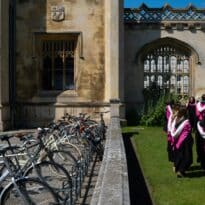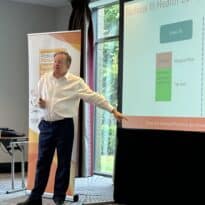Professional Paraplanner’s TDQ (Training, Development and Qualifications) series, is run in conjunction with key support providers, such as Brand Financial Training, and aims to test your knowledge of the financial services market, as part of your overall training goals and exam techniques.
The following questions, which can also be found in our September 2021 issue, relate to examinable Tax year 20/21.
QUESTIONS
1. Which of the following elements would you NOT expect to see within a firm’s framework for embedding an ethical culture into the firm?
A. No commitment to a professional ethical body
B. Ethics code or values statement
C. Methods of measuring and evaluating ethics
D. Process and structures to embed ethics
2. John is employed full time in a local school but in his spare time makes children’s toys. His earnings for this are £100 per week. Which of the following National Insurance Contributions must John pay on these self-employed earnings?
A. Class 2 only
B. Class 3 only
C. Class 4 only
D. He is not obliged to make any contribution
3. Manesh is a member of a defined contribution pension scheme but does NOT receive an annual Statutory Money Purchase Illustration. This is because Manesh has a:
A. personal pension.
B. Stakeholder Pension.
C. Self-Invested Personal Pension.
D. Retirement Annuity Contract.
4. Belinda, a single parent, has 2 children aged 8 and 10, has taken out a personal accident and sickness policy for herself. If she wanted to extend the cover of the policy to cover her children, what restriction might there be?
A. The lump sums payable on the events covered will be half the amount paid to her
B. The cover may be restricted to accidents only
C. The cover may exclude permanent disablement
D. The children can only be covered if they live with her permanently
5. A company is likely to be considered as having a high operating leverage if fixed costs are above what percentage of total costs?
A. Over 20%
B. Over 40%
C. Over 60%
D. Over 80%
6. What is a buyer of a covered call warrant actually buying?
A. The right to buy the underlying security at a predetermined price and date
B. The right to sell the underlying security at a predetermined price and date
C. An obligation to buy the underlying security at a predetermined price and date
D. An obligation to sell the underlying security at a predetermined price and date
7. Which body deals with complaints against the NHS which CANNOT be resolved at a local level?
A. Patient Advice and Liaison Service
B. Parliamentary and Health Service Ombudsman
C. Local Authority Ombudsman
D. Healthcare Commission
8. The Mortgage Conduct of Business sourcebook (MCOB) rules specify that customers must be given reasonable notice of “event driven” information. Each of the following falls into this category with the exception of which one?
A. The firm’s right to enter the property to carry out essential repairs and maintenance
B. Any material changes in terms and conditions that can be varied unilaterally by the firm
C. The initial rate of interest charged on an equity release mortgage
D. Any changes in payments that are required
9. Jon and Sam have their hearts set on a period end of terrace property in a nearby town. However, property prices are such that they don’t want to sell their existing house until the property market improves. What sort of arrangement would suit them?
A. Let to buy
B. Rent and buy
C. Buy and rent
D. Buy to let
10. If a company’s share price rose from 175p to 225p, what effect would this have on its Price Earnings Ratio?
A. It would increase.
B. It would decrease.
C. It would remain the same.




























